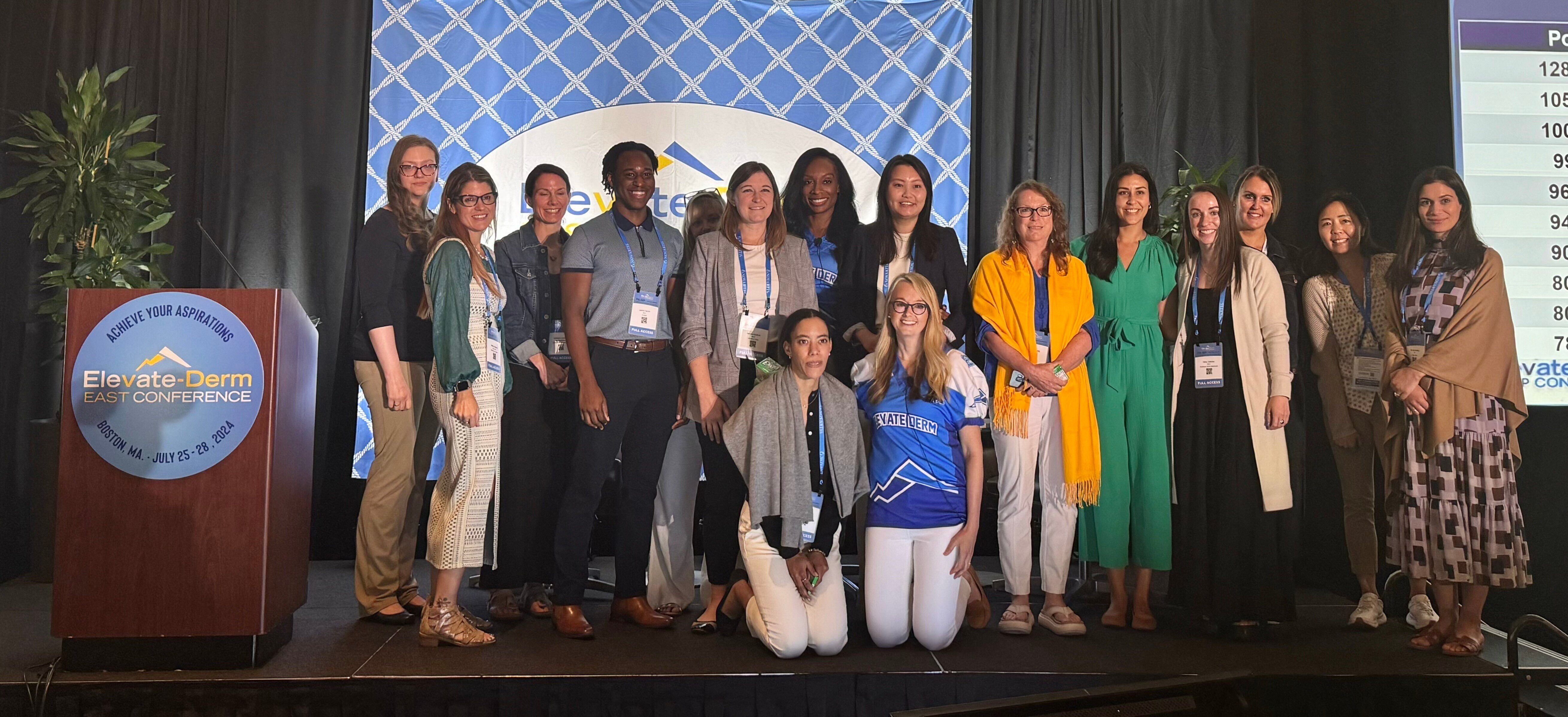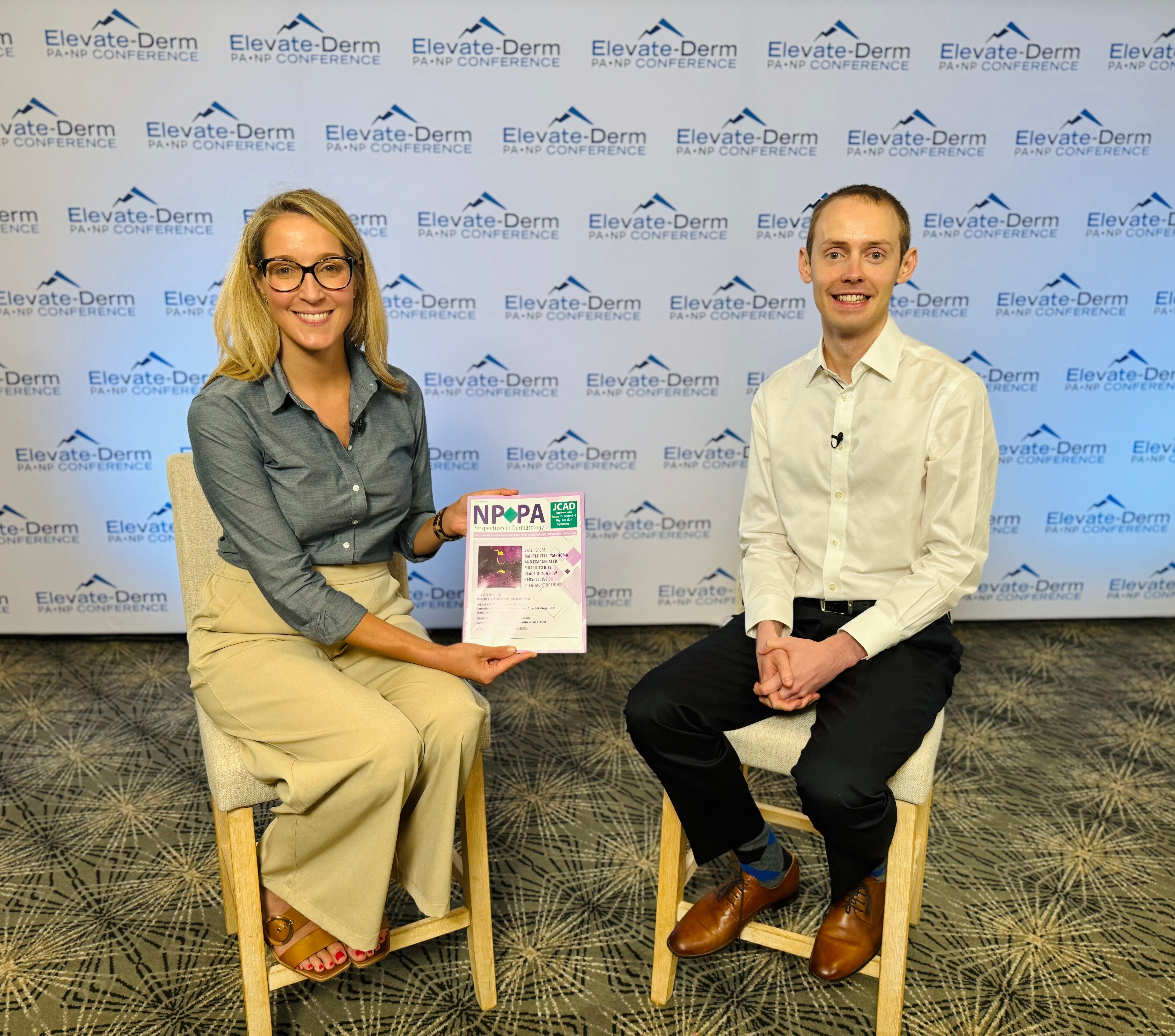2024 Elevate-Derm East Derm Conference Day 2
Elevate-Derm East Conference Day 2
Day two of the Elevate-Derm East Conference began with a refreshing sunrise yoga session before participants moved to the lecture hall for another series of compelling presentations.
Dr. Brittney Schulz started the day with her lecture on Updates in Immunobullous Disorders. Key takeaways included the fact that pemphigus can be triggered by various factors such as drugs, vaccines, infections, nutrition, pregnancy, stress, and trauma. She also highlighted the association of pemphigus vulgaris with autoimmune conditions like thyroid disease and myasthenia gravis. Additionally, she noted that individuals with bullous pemphigoid face double the risk of venous thromboembolism.
Dr. Rebecca Hartman from Dana-Farber Cancer Institute provided the 2024 Melanoma Updates after breakfast. She recommended genetic testing for patients with three or more primary invasive melanomas and/or pancreatic cancer in first- or second-degree relatives. Dr. Hartman also mentioned that the American Academy of Pediatrics advises against sunscreens containing Oxybenzone for children due to potential endocrine disruption. In her next talk, “When to Put Down the Scalpel: Non-Surgical Therapies for Skin Cancer,” she discussed FDA-approved topical treatments for superficial basal cell carcinomas, including 5-fluorouracil and Imiquimod. She suggested using intralesional 5-fluorouracil for eruptive squamous atypia on the legs, noting that most lesions resolve with this monotherapy, though some may require additional treatment.
After lunch, Dr. Josh Zeichner presented “The State of Acne 2024,” sharing insights from his research at Mount Sinai. His advice included using Trifarotene, a fourth-generation retinoid that helps with both acne and scarring and that dosing isotretinoin twice daily enhances drug exposure.
Dr. Zeichner then joined Dr. Vaneeta Sheth from Lahey Health for a session on "Cases From the Clinic." They discussed routine potassium monitoring for patients on Spironolactone. While generally unnecessary for healthy women, it is recommended for older patients or those with renal, cardiac, or liver conditions, and those on higher doses. The panel also advised using a biopsy to exclude deep fungal infections or malignancy before starting immunosuppressants for pyoderma gangrenosum.
The afternoon featured a Dermatology Quiz Bowl organized by Kerri Holyoak, PA-C, and Buchi Neita, PA-C. Five teams competed to answer questions from previous lectures for a chance to win a dermatoscope. The competition was intense, but one fortunate team walked away with a new DermLite DL 200.
The day concluded with lectures from Dr. Josh Zeichner on Cosmeceuticals in 2024 and Dr. Vaneeta Sheth on Cosmeceuticals in Skin of Color. Dr. Zeichner explained that cosmeceuticals are not subject to pre-market FDA approval and differ from cosmetics, which primarily beautify or cleanse the skin. In contrast, topical drugs alter the skin's structure or function. Dr. Sheth clarified that while the number of melanocytes is the same across skin tones, melanosome variations account for differences in skin color. She also pointed out that post-inflammatory hyperpigmentation in patients with skin of color often becomes a greater concern than the active acne itself.
The evening wrapped up with the Nautical Nights Event, where attendees and faculty mingled over cocktails and dueling pianos. The lively atmosphere extended from the day's sessions into the ballroom, featuring networking opportunities, live music, temporary tattoos, and dancing, all set against a maritime-themed backdrop.



